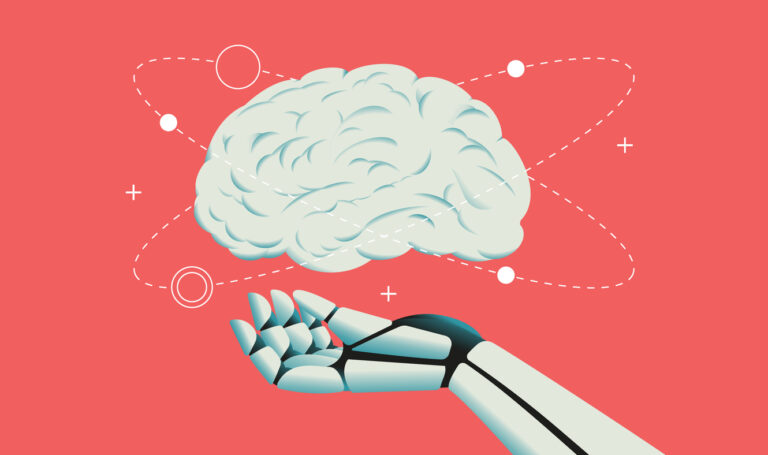Discovering Paths and Dreams: Lessons from Dr.Banskota

Today, we’re thrilled to feature Dr. Samagya Banskota, an assistant professor of biomedical engineering at Boston University. Recognized by MIT Tech Review as one of their “Innovators Under 35” in 2022, Dr. Banskota is already making waves in healthcare with her groundbreaking research.
Last spring, we had the opportunity to visit her lab at Boston University. With its beautiful view of the Charles River, her lab space was stunning! She inspired and energized us as she explained complex ideas with enthusiasm and passion. We also found a video about her lab, so please check it out.
In this post, we explore Dr. Banskota’s incredible journey—from her childhood in Nepal to her pioneering work in biomedical engineering. In our interview, she shares valuable insights on choosing a major, staying motivated in a challenging field, and making the most of every opportunity. At the end, we reflect on the key lessons from her success.
A Glimpse into Dr. Banskota’s Journey
Dr. Banskota’s story begins in Nepal, where she attended a Catholic missionary school before continuing her studies in India with an International Baccalaureate (IB) program. She later pursued her undergraduate degree at Penn State, earned a PhD in biomedical engineering from Duke University under Dr. Ashutosh Chilkoti, and completed postdoctoral research at the Broad Institute of Harvard and MIT under Dr. David Liu.
Q&A with Dr. Banskota
Why did you choose biomedical engineering?
Dr. Banskota: I was drawn to the endless opportunities to develop technologies that could directly impact healthcare—whether it’s designing MRI machines, creating prosthetics, or engineering vaccines. Biomedical engineering fascinated me because it allowed me to combine my passion for science with a drive to solve real-world problems and improve lives.
What college experiences shaped your career?
Dr. Banskota: During my senior year, I had an opportunity to work in a cancer biology lab in Australia. This was possible because I’d completed most of my required credits to graduate, so I spent that year doing full-time research for my undergraduate honors thesis. While my work wasn’t traditional engineering research—it was heavy in basic biology—but it really sparked my love for research and set me on the path to graduate school.
Do you have any advice for choosing a major?
Dr. Banskota: Your major doesn’t lock you into one path forever. For those who haven’t decided on a major yet, one approach might be picking something versatile, like math, statistics, or computer science, because those skills are useful in so many fields. If you’re interested in both science and humanities, you can explore those through double major or minors. Ultimately, your post-college experiences and the skills you develop will play a much bigger role in shaping your career than just your undergraduate major.
What keeps you inspired in such a challenging field?
Dr. Banskota: It’s a privilege to work on discoveries that no one has found before and that could someday change lives. Along with scientific discovery, I also teach and train people—seeing them succeed and knowing that our discovery and training could have life-changing impact on their families and kids is deeply fulfilling. It makes the journey worthwhile.
Can you share a little about your childhood in Nepal?
Dr. Banskota: Growing up in Nepal, I always wanted to do something different—at one point, I even wanted to be a marine engineer, even though Nepal has no sea! I don’t know why, but I was drawn to being unique. Around seventh and eighth grades, Nepal was in the middle of a civil war, and schools often closed due to strikes. After finishing 10th grade, I moved to India for an IB program. It was my first time living away from family, and it was tough at first. But I saw it as an amazing opportunity, and looking back, those two years were some of the most memorable and rewarding of my life.
The Making of an Innovator
From our conversations with Dr. Banskota, we thought that a few themes stood out about her journey:
- Thinking Outside the Box: From pursuing unique career paths to tackling bold research questions, Dr. Banskota isn’t afraid to embrace the unknown.
- Appreciating Opportunities: Whether it was leaving Nepal for boarding school or joining a cutting-edge research lab, she seized every opportunity with gratitude and determination.
- Wholehearted Commitment: At every stage—from her senior-year research to her postdoctoral work at the Broad Institute—Dr. Banskota gave her all, earning the trust and mentorship of leaders in her field.
When we asked about college coursework and how to select classes, Dr. Banskota revealed her mindset:
“You want to challenge yourself, right? Otherwise, life isn’t interesting. When you take classes in college, you want to choose ones that challenge you, because you spend an entire semester studying. You want that time to be worth something. Remember, your time is very valuable—every moment you lose, you lose that time. So, you don’t want to take a class where you’re not learning or enjoying. That’s always been my attitude.“
Family Influences: A Legacy of Resilience
Finally, one part of our interview left a lasting impression. When we asked about her biggest influences, Dr. Banskota shared stories about her father, a doctor who devoted his career to working with kids in conflict zones and refugees, and her grandmother, who taught her resilience and independence.
“Be so good that you don’t have to rely on anyone,” her grandmother often told her.
Her grandmother dreamed of seeing her on television—not as a scientist, but as an actress or anchor, which she saw as symbols of success. While Dr. Banskota chose a different path, she said that she carries forward her grandmother’s determination and strength.
Our Takeaway
Dr. Banskota’s story reminds us that success isn’t just about talent—it’s about seizing opportunities, and staying curious. Her ability to turn challenges into stepping stones and to inspire those around her makes her a role model for anyone aspiring to innovate and make a difference.
After talking to her, we concluded that exploring the unknown, embracing challenges and seizing opportunities, and investing in and connecting with others are essential to realizing one’s dreams.
We feel so fortunate and appreciative to have had the opportunity to interview Dr. Banskota. We will carry her advice with us as we move forward to college and beyond.
That’s all for today!
Thanks for reading, and we hope this blog helps you think about your journey ahead.
Love,
Thomas and Craig







